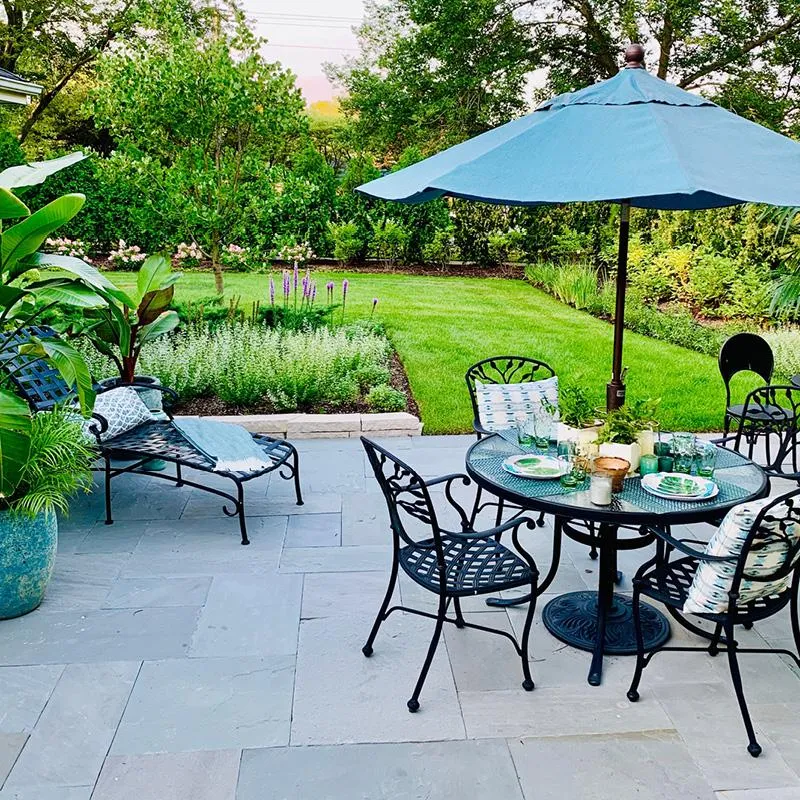Transform your backyard in St. Augustine, FL, into a visually stunning landscape that’s a source of fresh, delicious fruits with edible landscaping. This sustainable approach combines the aesthetic appeal of ornamental landscaping with the practical benefits of growing your own food. Here's how professional landscaping services can help you integrate fruit trees and vines into your outdoor space, creating a backyard that delights both the eyes and the palate.
Related: High Springs and Alachua, FL: Expert Landscape Design for Stunning Outdoor Living
Why Choose Edible Landscaping?
Edible landscaping is an innovative way to beautify your backyard while maximizing its functionality. This method allows you to grow organic, healthy food—all within the comfort of your own property. Incorporating edible elements into your landscape design is practical and enjoyable, especially in our area, where the climate is favorable for various fruit-bearing plantings.
Selecting the Right Fruit Trees and Vines
Professional landscapers can help you choose the best types of fruit trees and vines that will thrive in our area’s climate while complementing your existing landscape design:
- Fruit Trees: Consider citrus trees such as oranges, lemons, and grapefruits, which flourish in warm climates. Other fruit trees like figs, peaches, and pears can also be adapted to this region with the right care.
- Vines: Grape vines not only produce delicious fruits but can also add vertical interest to your landscape. Passion fruit vines are another great option, offering both striking blooms and tasty fruits.
Related: Create a Charming Outdoor Space With a Custom Paver Patio in Gainesville, FL
Design Principles for Edible Landscaping
Incorporating edible plantings requires careful planning to maintain both the landscape's beauty and the productivity of the plantings. Here’s how professionals tackle these design challenges:
- Integration: Fruit trees and vines should be integrated into your existing landscape to enhance rather than overwhelm it. For example, fruit trees can serve as focal points or natural privacy screens, while vines can be trained along fences or trellises to add greenery and shade.
- Zoning: Edible plantings have specific sunlight, water, and soil requirements. A professional landscaper will zone your backyard into areas that meet these needs while ensuring the overall design is cohesive.
- Accessibility: Fruit-bearing plantings should be easily accessible for maintenance and harvesting. Walkways and clearances are strategically planned so you can enjoy the fruits of your labor literally and figuratively.
Soil Preparation and Maintenance
Successful fruit landscaping starts with the soil. Professional landscaping services will:
- Test the Soil: Understanding the soil composition and pH level is crucial for selecting suitable plantings and amendments. Professionals use advanced testing techniques to precisely identify nutrient deficiencies and contaminants that could hinder planting growth.
- Improve Soil Quality: Amending the soil with organic matter and the appropriate fertilizers will ensure that your fruit trees and vines have a healthy start. This step often involves adjusting the soil's structure and nutrient content to create the ideal growing environment for fruit-bearing plantings.
- Ongoing Care: Fruit trees and vines require ongoing care, including pruning, fertilizing, and pest management. Professionals provide these services to maintain the health and productivity of your plantings. Regular visits allow landscapers to monitor planting health and adjust care routines, ensuring optimal growth and fruit production.
Irrigation and Water Management
Efficient water management is key to any successful landscape, particularly in edible landscaping. Drip irrigation systems are often recommended for their efficiency in delivering water directly to the root zones of planting—reducing waste, and preventing the spread of leaf diseases. These systems can be customized to meet the specific water requirements of each planting, ensuring water is used effectively.
Enjoying Your Edible Landscape
Imagine walking through your landscape, plucking fresh fruits directly from the tree or vine. This can be your daily reality with a well-designed edible landscape. It’s not just about the harvest; it’s about transforming your backyard into a lively, productive space with a unique blend of beauty and function. Your edible landscape can become a place of nourishment, relaxation, and connection with nature, enriching your life in countless ways.
Related: Enhancing Your Alachua, FL Home With a Custom Paver Patio Design


